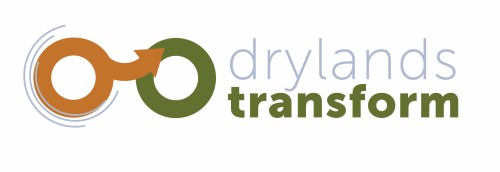Physically meeting
First I wanted to know how it was to meet everyone, and of course especially the PhD colleagues and the supervisors. Margeret was happy and said:
"The annual meeting was a fantastic opportunity to connect with the rest of the Drylands Transform project team, especially the other PhD students and my supervisors. The atmosphere was collaborative and supportive, and there were plenty of opportunities to discuss our research, share ideas, and learn from each other."
Further, Margeret also expressed gratitude for meeting other research fellows and the locally invited guests, who played crucial roles in guiding in the different areas and topics of the research work, and creating a conducive environment for academic growth. For Kuule, the meeting was of paramount importance since it brought all the project members and students to physically meet after a yearlong session on online platforms only. He adds:
"The meeting was a very good platform for me as a PhD student to meet with my supervisors and together internalize and share ideas on the progress of my research and the next steps. The input and knowledge sharing on both specific and cross-cutting issues from both the project members and the invited participants from Napak and Moroto district local government and non-governmental organisations was a good eye opener on such issues and missing links for PhD research and my supervisors."
Both of them also realized things related to their own research that can help them move forward. Kuule's research is on social conflicts in the Karamoja border region. He saw the need to streamline his study with clear definitions on terms of social conflicts as well as clearly bringing out the interconnectedness in the different forms of social conflicts as well their driving forces in the work.
Margeret is working with different fodder grass experiments and she saw the need for continuous progress on data analysis, developing manuscripts and working closely with our supervisors to finish on time. She also emphasized the need for students to support each other, especially during the planned seminar sessions when presenting their work, by giving comments to help improve.
Local engagement
Local government officials were invited to the meeting and field trips were made to give feedback to communities. Both Kuule and Margeret clearly saw the importance of continued engagement of both the local governments and local communities in the planning process of the project. Including local communities and other stakeholders in the research process has been a cornerstone for the acceptance and smooth implementation of Drylands Transform project interventions. Margeret said:
"It was very interesting to learn and see that the communities are embracing kitchen gardening and the project has brought back some seeds like Dolichos lablab which communities used to have sometimes back and were lost."
She thought that provision of seeds is key for further adoption of kitchen gardens and to support the communities around the Livestock Café.
Kuule, who is more working with conflicts, learnt from Margerets experiments of the various fodder technologies (such as pasture sowing and integration of grasses with legumes) being used in the Drylands Transform project demonstration areas (Livestock cafes) during the field trip.





